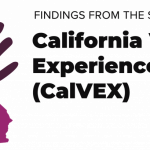Grant Announcement — GEH Awarded New Grant on Social Norms Research with Adolescents

Photo Credit: Mansi Midha/Getty Images/Images of Empowerment, Udaipur, Rajasthan, India
Researchers at the Center on Gender Equity and Health (GEH) at UC San Diego have been awarded a $1.7 million grant from the Bill & Melinda Gates Foundation to conduct research on how social norms affect the health of adolescent girls and young women in sub-Saharan Africa and South Asia. When complete, the team will translate the evidence into program recommendations that improve girls’ and women’s lives while addressing those norms.
The research will focus on the relationship between social norms and behaviors across several sectors of work, including gender-based violence, sexual and reproductive health, child marriage, and women’s economic empowerment. The team will examine what existing evidence tells us about the effectiveness of norms change programming and the way technology (social media, gaming, educational entertainment) and faith-based approaches influence social norms. “Understanding these contextual factors is a vital precursor to effective social and behaviour change efforts,” said GEH Co-Executive Director Rebecka Lundgren, PhD, the project’s principal investigator.
Social norms form mostly unwritten rules that define acceptable and appropriate behavior within a given group or community. Their power to encourage or discourage behaviors can profoundly affect the well-being of individuals and communities. Because adolescents and youth aged 10 to 24 make up a significant portion of the world’s population, understanding the influence of social norms on their behavior is crucial in order to address the challenges to their health and well-being in the long term.
“Beyond supporting our research efforts, this grant provides the building blocks for programs that can effect long-term change by shifting the community systems that keep girls and women from leveraging their agency to make decisions that improve their quality of life,” said Courtney McLarnon, co-investigator.
Lundgren, McLarnon, and a team of GEH researchers will work closely with a technical advisory board of social norms experts and social norms practitioners around the globe to gather and interpret evidence to gain a deeper understanding of the role social norms play in shaping behavior, identifying practical applications for research, programs and policies. Throughout this initiative, GEH will consult with researchers, social and behavior change practitioners, and implementers in the U.S., Nigeria, Kenya, and India, followed by a global virtual consultation to share and vet results.
“We are so grateful for this opportunity to deepen our understanding of the complex web of structural and social factors that shape social norms,” said Lundgren. “Understanding these factors paves the way for programs that are acceptable, effective, and ethical within a given social context.”
This project pairs with another new GEH project, the Social Norms Diagnosis, Nigeria and Kenya initiative, led by CARE. GEH will conduct in-country research to identify gender norms that can inhibit or support desired identified behaviours related to gender-based violence, sexual and reproductive health, child marriage, and women’s economic empowerment in Kenya and Nigeria. This work will produce qualitative insights that will inform multimedia and faith and community leader initiatives seeking to amplify positive norms while mitigating those that are harmful.


